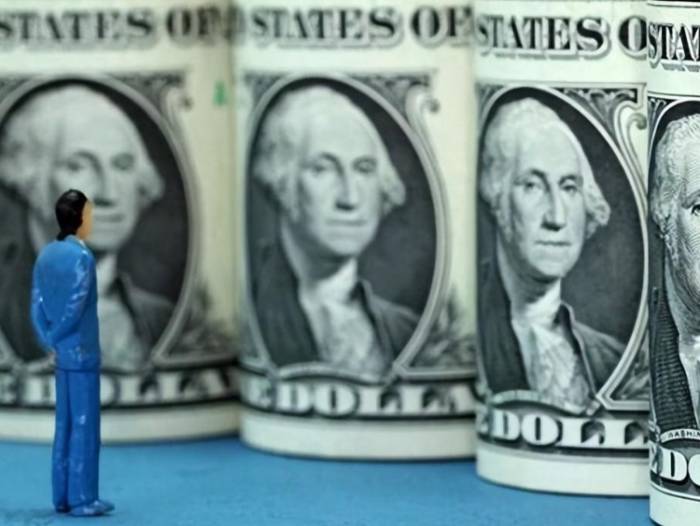The tightening of regulatory measures in the securities market plays a critical role in ensuring fairness, transparency, and accountability within the financial sector. This approach is not simply a reaction to past indiscretions but is instead a proactive strategy aimed at safeguarding the interests of investors and maintaining the integrity of the financial system. As governments across various nations fight against insider trading, market manipulation, and false disclosures, these measures serve as a reminder of the importance of regulatory vigilance.
In China, the continuous efforts of the China Securities Regulatory Commission (CSRC) to combat financial fraud have gained significant momentum this year. The CSRC has emphasized the need for uncompromising oversight and stringent monitoring. To this end, a comprehensive punishment and prevention system has been established, particularly targeting fraudulent financial reporting by publicly listed companies. Since the beginning of the year, the regulatory body has investigated numerous cases, leading to the imposition of penalties that have already surpassed those of the previous year. This is a clear signal that regulatory bodies are no longer willing to tolerate such violations.
A notable instance of this intensified regulatory approach occurred in May, when the CSRC slammed Evergrande Group with a staggering fine for fraudulent bond issuance and failure to disclose pertinent information. The penalties issued were not merely nominal; the company was ordered to correct its practices, received a public warning, and was subjected to a hefty fine of approximately $41.75 million. Additionally, the chairman of Evergrande, Xu Jiayin, received a maximum fine of $4.7 million and faces a lifetime ban from the securities market. This decisive action underlines the seriousness with which regulators are treating financial misconduct.
Individual perpetrators have not been spared either. Recently, a crucial case involved young investors Liu Hongtao and Lou Ge, who were penalized for manipulating the stock price of Tengmao Technology. The CSRC's "one fine, three penalties" policy resulted in an impressive cumulative financial penalty of nearly $50 million, alongside bans from trading on the stock market. Such severe repercussions serve as strong deterrents, reinforcing the message that illegal market activities will result in stringent consequences.
Industry experts agree that the CSRC's sustained pressure on offenders signals a robust regulatory environment characterized by a "zero tolerance" approach. The concept of "maximum penalties" goes beyond individual cases, promoting a broader culture of compliance and investor protection. By imposing substantial fines for egregious offenses, regulators aim to create a chilling effect on potential violators, ensuring that the costs of illicit actions outweigh any potential benefits.
The ongoing endeavor to purify the capital market is not merely an ideological pursuit; it is essential for the stability of the financial ecosystem. A clean market is pivotal in promoting economic growth, protecting financial security, and facilitating high-quality development. By fostering an environment where fair practices thrive, the market is better equipped to fulfill its primary functions of resource allocation, risk management, and wealth generation. Sustainability in these areas brings about renewed vigor and growth potential for the economy.
Moreover, the CSRC is acutely aware of the demographic composition of the A-share market, where retail investors account for the vast majority. This realization has accurately influenced their policies, emphasizing equitable development and the mitigation of harm. Strengthened regulations around stock reductions, quantitative trading, and timely short selling are examples of rules and oversight measures that have taken shape to protect these vulnerable investors.
Wu Qing, a prominent figure in the regulatory community, has repeatedly underscored that strong oversight does not equate to indiscriminate harshness. Rather, effective regulation cultivates an environment where each participant fulfills their responsibilities adequately. It is essential to strike a balance that encourages a unique Chinese financial culture embodying principles of integrity, contractual adherence, and respect for investor rights.
Maintaining high standards among contracting institutions is also crucial. Recently, the Beijing Stock Exchange implemented evaluation guidelines focused on ensuring the quality of sponsoring institutions based on the qualifications of listed companies. Should an institution be found guilty of enabling fraudulent actions within the first three years of a company’s listing, this would negatively impact their evaluation score, serving as yet another deterrent against complicity in illegal activities.
In a move reflecting the seriousness of regulatory enforcement, the CSRC has taken administrative measures against securities firms like Kaiyuan Securities and Zhongyuan Securities, halting their corporate bond underwriting business for six months following serious violations. The July ruling to implement corrective measures aligns with the regulatory vision of ensuring compliance across the board, emphasizing that any infractions, regardless of severity, will be addressed appropriately.
The implications of qualification penalties are profound, impacting not just financial results but also reputations within the industry. These penalties discourage organizations from engaging in risky behaviors while simultaneously holding individuals to account for their actions. A lapse such as a "gap" in service provision in core business areas can derail income streams and have long-term repercussions on business credibility and future ventures. The perception of "survival crises" following severe penalties resonates throughout the industry and serves as a substantial warning to all participants.
Overall, the current regulatory climate in China reflects a firm commitment to fostering a transparent, fair, and efficient capital market. The multifaceted approach adopted addresses immediate infractions while laying the groundwork for sustainable practices. As regulatory bodies strengthen their processes and cultivate a culture of compliance, the capital markets are better positioned to promote economic integrity and protect investors’ rights, ultimately leading to healthier economic growth.






























Join the Discussion